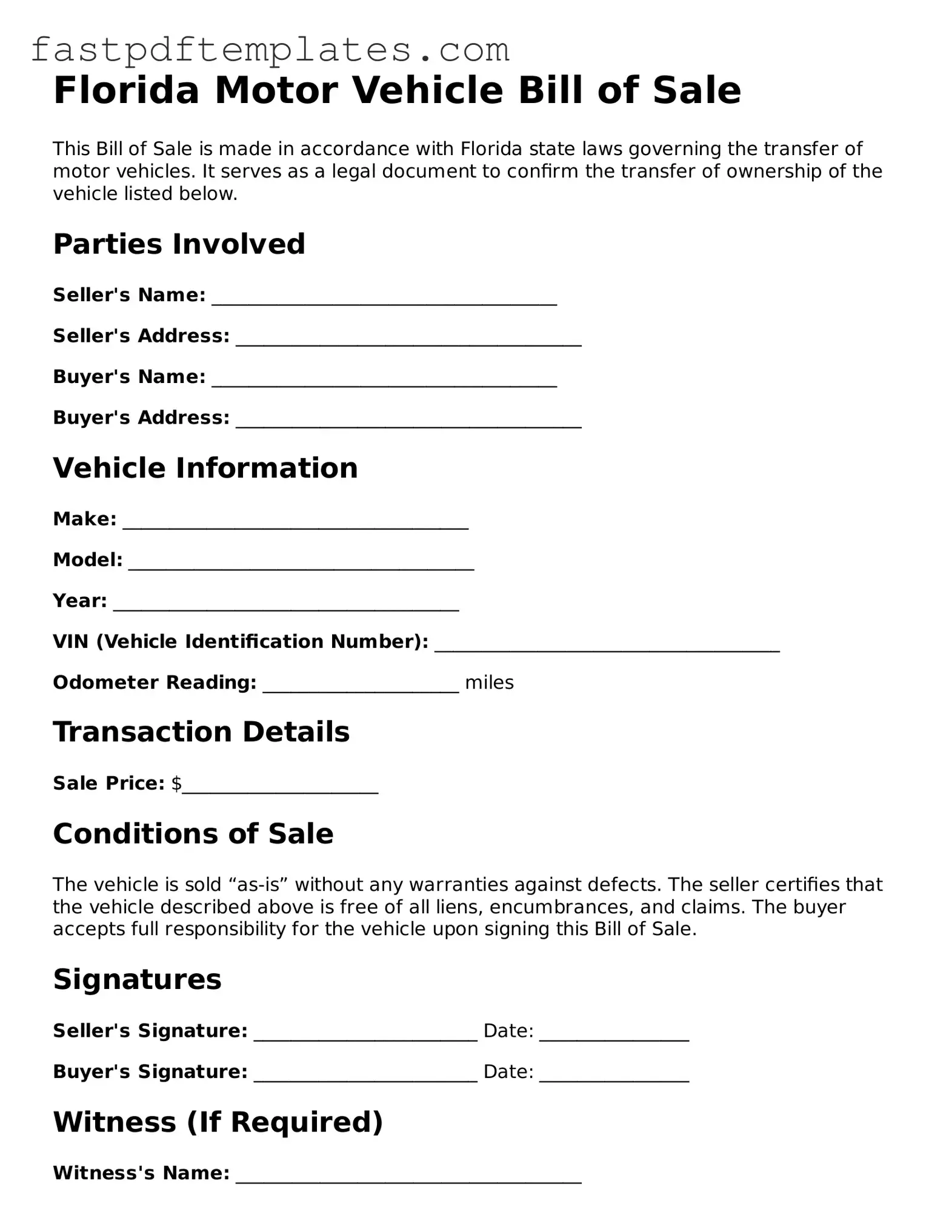Attorney-Approved Florida Motor Vehicle Bill of Sale Document
The Florida Motor Vehicle Bill of Sale form is a legal document that records the transfer of ownership of a vehicle from one party to another. This form provides essential details about the vehicle, including its identification number, make, model, and the sale price. Completing this document ensures that both the buyer and seller have a clear record of the transaction, which is crucial for future reference and registration purposes.
Access Document

Attorney-Approved Florida Motor Vehicle Bill of Sale Document
Access Document
Your form still needs completion
Complete your Motor Vehicle Bill of Sale online and download the final PDF.
Access Document
or
Click for PDF Form
